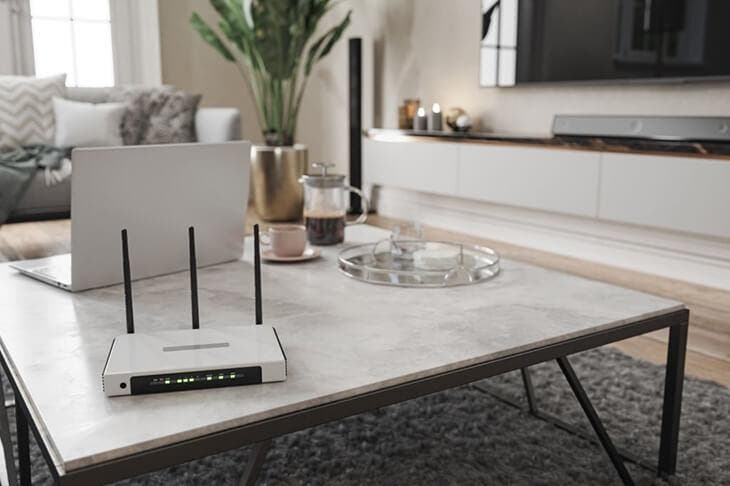The Wi-Fi router is one of the most used devices in the home to provide the internet network and connect computers and mobile phones. Because of this, it stays on all day. Should it be turned off when not in use? And how often? Here are some answers.
To meet a constant desire to stay connected, many people use Wi-Fi all day long, sometimes even at night. Others, on the contrary, prefer to disable it in order to reduce their energy consumption. Discover some information that will tell you the right way to handle this device.
Should I leave the router on all the time?
Opinions are not decided on the question. Leaving the router on, however, seems to have some significant advantages. It is then necessary to read it to adapt our way of using it.
The switched on router allows access to Wi-Fi at any time

One of the advantages of leaving the router on at all times is that it provides unlimited access to the internet. For this reason, this device has been designed to work 24/7, according to howtogeek. By turning off the device for more than fifteen seconds, the restart can trigger the negotiation of a new IP address with the Internet provider. While this will ultimately improve connection speed and network stability, it can take several minutes and prevent you from connecting.
The life of the router is extended
Although there is not a broad consensus on this, it would seem that repeatedly turning off the router can potentially shorten its lifespan. Indeed, thea power-on would not be beneficial for components of this device that are prepared to operate continuously. These are designed in such a way as to benefit from a rest period when the network is not used. So if you want to maintain the performance of your device, there is no need to turn it off daily. Of course, a router that is not used for many months, must be disabled.
Backing up data to the cloud also depends on the router

Some Internet users prefer to turn off the router at night. However, these ignore some of the drawbacks of data storage. By deactivating the device regularly, they can interrupt automatic cloud backups. These can be configured beforehand on the PC, smartphone or tablet. Some backup services such as the Apple iCloud for example, often take advantage of certain moments of inactivity to download data to their server.
“Periodically”, turning off the router can be useful
While it’s best to keep it on, the Wi-Fi router should be restarted at least once every two months. It is advisable to respect this deadline to maintain the reliability of the computer network and the performance of the device. Disabling it periodically could help you improve the device’s connection speed, fix minor issues and make patch updates. In addition, the router can also be a gateway for other connected devices in the home. Turning it off could prevent potential hackers from accessing the home network. Finally, if you want to make small savings on your electricity bill, turning off the router could indeed contribute, even if the annual amount saved is ridiculous but when combined with other gestures and other energy-consuming devices, the savings can be greater, according to expertise-energie.fr
Keeping the router on seems to be the smartest solution to extend its life and performance. However, to ensure greater efficiency, a periodic restart cannot be ruled out.
See also Security vulnerability: If your Wi-Fi router is on this list, you should update it immediately





